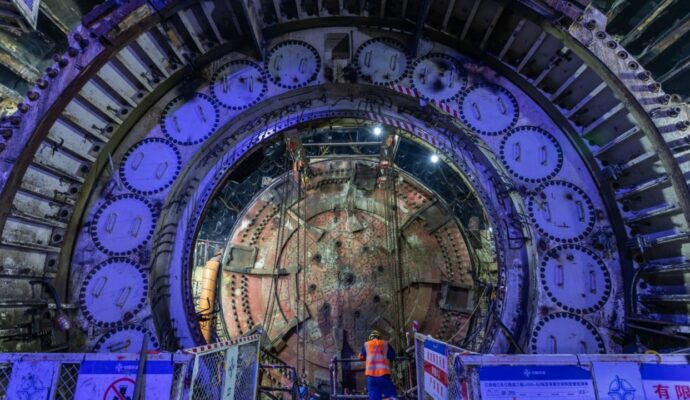His itinerary is a clue to some of Beijing’s priorities for future industrial development policies.
Zhang Guoqing, pictured in 2017, is promoting breakthroughs, innovation and collaboration with researchers, to China’s advanced manufacturing sector. Photo: Reuters
A statement from the State Power Investment Corporation said Zhang visited the China United Heavy-Duty Gas Turbine Technology Co and the State Nuclear Self-Instrumentation System Engineering Co, checking on the development of heavy gas turbines and digital instrument and control systems for third-generation nuclear power plants.
Hailing advanced manufacturing as “the foundation” of China’s strength, Zhang called for a “better combination of effective markets and active government, and continued efforts to optimise [the country’s] industrial policies and ecosystem”, according to Xinhua.
He urged the companies to take full advantage of China’s “new system for mobilising … nationwide resources”.
Zhang promoted further integration of industry and research in the pursuit of collaboration and innovation in both upstream and downstream supply chains and among enterprises of every size.
He encouraged “breakthroughs in a number of key core technologies as soon as possible, and [the building of] an independent, controllable, safe and reliable industrial chain” in China.
President Xi Jinping has promoted the idea of building a unique “new system” for mobilising nationwide resources to make leaps in core technologies in key fields since 2018, when the US slammed wide-ranging trade tariffs on Chinese goods.
Responding to the trade and tech war, defiant Beijing has embarked on a national drive to break the tech bottlenecks.
Unlike the private sector-led approach in the United States, Xi wants the ruling Communist Party under his leadership to take charge of the innovation, and he has repeatedly called on the nation to leverage “the marked advantages of socialism”, allowing the ruling party “to mobilise resources to accomplish major initiatives”.
Zhang also called on the manufacturing companies to better leverage China’s advantages as an “ultra-large-scale market”, to test innovations and connect the dots on the supply chain, and speed up development of “high-end, intelligent and green” manufacturing.


